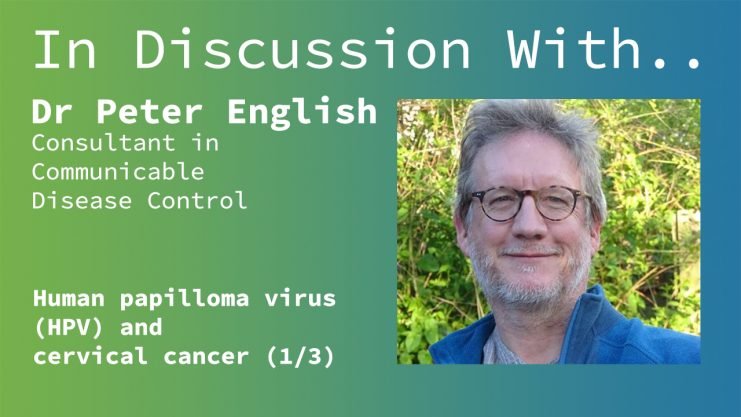Advertisment
Human papilloma virus (HPV) and cervical cancer

Interview and article by Christine Clark
Cervical cancer accounts for about 850 cancer deaths in the UK every year – more than two every day – and yet 99.8% of cervical cancer cases are preventable, according to Cancer Research UK. IMI interviewed Dr Peter English, a consultant in communicable disease control to find out more about the UK cervical cancer prevention strategy.
Dr English has direct personal experience of HPV vaccination; he followed the development of the vaccine at European Society for Infectious Disease conferences and often discussed it when he returned home. When the drug was marketed his then 14-year old daughter asked if she could have the vaccine. ““She picked up on the conversation…It wasn’t a hard sell by any means”, he recalls. He obtained the first dose of the vaccine and administered it to her himself.
At least 99% of cases of cervical cancer are caused by persistent human papilloma virus (HPV) infection. “We know that, at least prior to the vaccination programme, most people would acquire the virus within a year or two after starting to have sex – it’s just part of what happens to everybody. Most people, when infected with the virus, will clear it spontaneously – their immune system will recognise it and clear it, but in some people that doesn’t happen or it takes a long time”, says Dr English
The viruses that cause cervical cancer belong to the same family of viruses as those which cause warts and verrucas. Warts and verrucas can be slow to resolve spontaneously because it sometimes takes the immune system a long time to recognise and react to them. “So, if you have the virus sitting in your genital tract for a long time – years – it can start to cause precancerous changes and eventually cancer”, he says
If the women who have the virus in their genital tracts can be identified then further screening to identify cancer or precancerous changes can be offered. “We have good tests – it is very easy with polymerase chain reaction (PCR) tests to pick up tiny quantities of virus with a vaginal swab – possibly even, in due course, just in a urine sample”, explains Dr English.
Men are also susceptible to infection with HPV. Men who have sex with men (MSM) are particularly prone to anal cancer, which is caused by the same strains of HPV as those that cause cervical cancer. “In fact, a higher proportion of anal cancers are caused by the strains that cause cervical cancer ….. so the vaccine is likely to be extremely effective at preventing anal cancer in men”, says Dr English. HPV can also cause penile cancer, anal cancers in women, other cancers of the genital tract and cancers of the head and neck. “You can get cancers in the mouth and neck caused by exactly the same virus for the same sorts of reasons”, he adds.
Dr Peter English has been a Consultant in Communicable Disease since 1998 and has a particular interest in vaccines. He is also former editor of Vaccines in Practice, and until autumn 2020 was chair of the British Medical Association Public Health Medicine Committee.
Read and watch the full series on our website or on YouTube.





